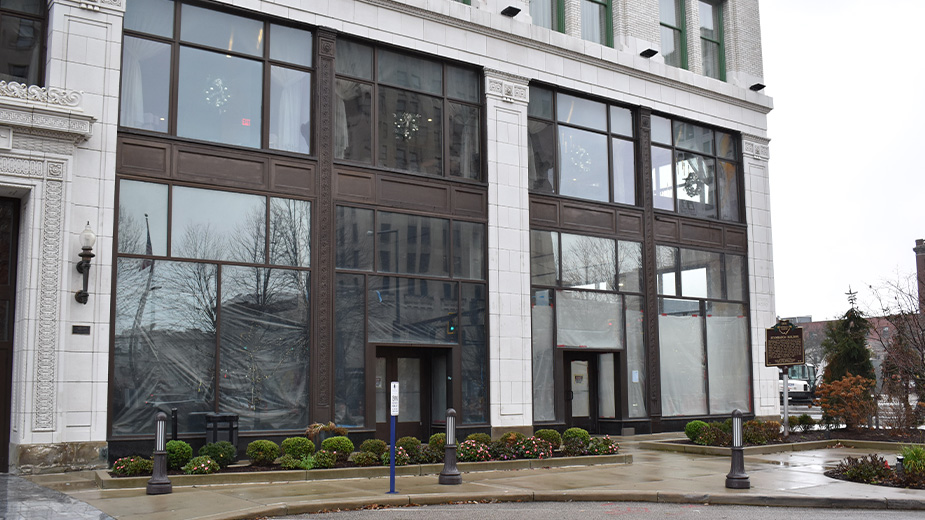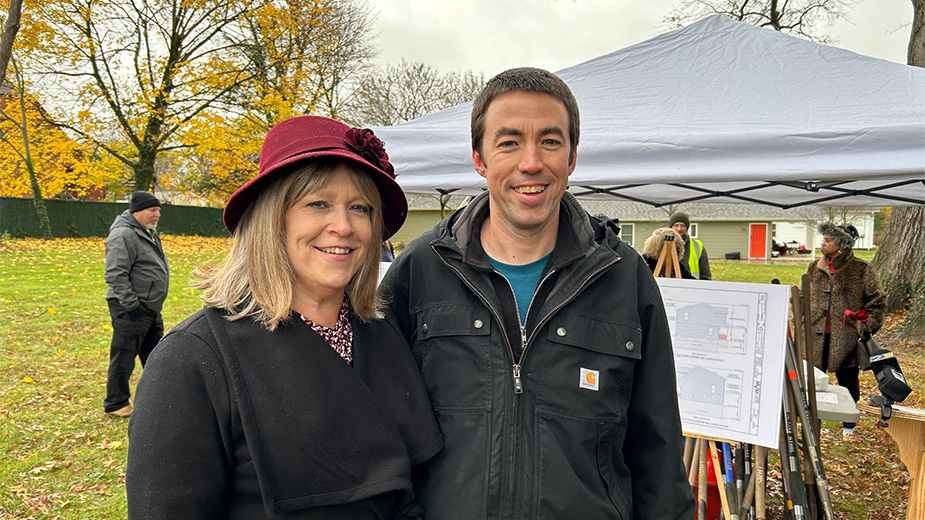Warren Looks to Incubators, Land Acquisition for Growth
WARREN, Ohio — The announcement last summer that Laird Technologies would relocate its Cattron division to Warren from Sharpsville, Pa., is seen as the turning point in the city’s recovery from four decades of economic decline.
The British company moved more than 100 jobs across the state line and said it would create as many as 55 more.
But the city of Warren getting its business environment back on track took more than simply wooing companies. It was the result of years of examining what went wrong beginning in the 1970s and what the city needed to reverse that decline, officials say
Two initiatives fueled the recovery, Mayor Doug Franklin says: establishing relationships with companies already here and bringing in new businesses in diverse industry sectors.
“If we’ve learned anything from our history it’s that we don’t put all our eggs in one basket,” he says. “We want to have a diverse and attractive tax base that shows future companies that our city is a great place to do business, regardless of what that business is. We don’t want to be pigeonholed into one category.”
As Franklin well knows, the job losses had piled up.
RG Steel closed in 2012, laying off 1,000. The last 85 workers at the Ohio Lamp Plant of General Electric just north of downtown clocked out for the final time in late January 2014. The Delphi Packard plant has been shrinking more than two decades.
“The loss of Delphi was the low point,” states Tony Iannucci, executive director of the Warren Redevelopment and Planning Corp.
Iannucci was city auditor until 1995 before joining WRAP. Back then, he notes, Delphi employees paid about $2 million in annual municipal income taxes.
“Now, as I understand it, it’s less than $100,000,” Iannucci says. “That impacts the city tremendously when you have that kind of loss.”
After he took office in 2011, Franklin says he made talking to business owners a top priority. He set up roundtable discussions to learn what business owners suggested the city could do to improve the economic climate.
“We looked a lot at quality-of-life issues,” says Mike Keys, Warren community development director. “As a city trying to attract an investor, I need to show some pride and be willing to make an investment in the city myself.”
As part of that effort, the Franklin administration has repaved streets, renovated and repaired downtown buildings, and continues to eliminate blight throughout the city, Keys says.
Even the companies that don’t end up in Warren were impressed, according to Keys.
“They seem amazed by the community. Whether or not they stay with us, they leave impressed by what they’ve seen,” he says. “Once you show you care about the city, people start to think, ‘Well, that’s not a bad place to be.’ ”
Last summer, the city announced that Laird Technologies would relocate its Sharpsville operation to Warren. The building on North River Road is twice the size of that in Sharpsville and brought all the jobs from Pennsylvania, along with the creation of about 55 more.
“That was nice to have. It was something that hadn’t happened in this city for a very long time,” the mayor says. “We’re confident that they will have a long-lived future in Warren and we’re poised for them to grow more. Part of the deal that brought them here was we could offer land for expansion.”
One aspect of Warren’s plan to attract business, Keys says, is acquiring vacant industrial and commercial land. So far, most of those moves have been around downtown, Parkman Road and North River Road around Laird.
“We’ve developed a series of tax incentives and started grabbing onto properties when we could,” Keys explains. “If we saw a property available, we’d take control so that some were available to make good deals with developers.”
Those incentives, Keys says, take the form of abatements on Warren’s income tax.
The amount varies from business to business, he adds, and is calculated using a points system that factors in payroll, number of employees and whether the company would move into an existing building.
While companies such as Laird have come to the city, economic development officials are making a big push to help established businesses interested in expansion.
“We’re running out of some space, which is a good problem to have,” Franklin says. “Out in the Warren Commerce Park, we’re going to enlist a consultant to mitigate wetlands to create space for job creation. Inside the city, we have some land on Dana Street and Enterprise Drive N.W., along with working with the new owner of the RG Steel building.”
But he expects the future of business will be more technological than industrial. And, the mayor says, that’s all by design.
“We want to diversify our tax base and make sure we bring that base to more technical and cutting-edge type of jobs,” he says.
Two business incubators, the Tech Belt Energy Innovation Center and the Warren Business Exchange, have set up shop in Warren. TBEIC, on Market Street in the downtown, is an alternative-energy incubator with two companies as tenants.
Dave Nestic, TBEIC chief executive of regional operations, says two more “probably should be here within the next 30 to 60 days.”
By the end of the year, he estimates, there could be as many as six.
“Having that means you cut out 10 years of development for the incubator and its programs,” Nestic says.
The Warren Business Exchange, which WRAP operates, acts as a temporary office space for startups. While technological advancements benefit city rebranding efforts, Iannucci says that it’s small businesses that will keep Warren moving forward.
“The technology sector is very important and small businesses are the heart of growth in this city,” Iannucci continues.
He points to one business that moved out of the exchange last month, Patriot Home Care. Started about 18 months ago with three employees, the company now has about 30.
“Before they could start working with patients and collecting money, they had to be set up with an office, electronic records and everything else,” Iannucci explains.
Lacking income, it would have been difficult to afford office space, says Patriot co-owner Sean Davis, but the exchange provided space at no charge as Patriot took certification steps as required by Medicare and Medicaid.
“We went from nothing to a multimillion-dollar corporation,” Davis says. “And we’re paying taxes to the city of Warren for all of that. They gave us that space for a couple years and now we’re paying it back tenfold in taxes.”
During the startup, WRAP’s support was “invaluable,” he adds.
“They’re people that have been in business and have the experience,” Davis says. “We knew our business, but we didn’t know ‘business business,’ ” he says, using his hands to make air quotemarks. “It was helpful to have them there to bounce those business-related questions off them.”
In early June, WRAP also opened Shops on the Square at 124 N. Park Ave. downtown. The space, a former radio station, has eight rooms available for lease to startups that need little space – such as those selling art or food.
“This concept allows for people with a great product or idea to take a low-capital risk while benefiting from the support and encouragement of peers,” says WRAP consultant Melisa Holmes. “We are creating a space where people can thrive.”
The first shop in the building was Manda Bees Headbands, which had a presence as the online storefront Etsy, says the company’s owner Amanda Benchwick.
With incubators set up and helping businesses grow in sectors where Warren hadn’t seen much and efforts underway to attract new companies, there’s really only one thing for the city to do, the mayor says.
“We press the accelerator. We continue to do the things we’ve been doing and we continue to build relationships,” Franklin says. “It’s those relationships that got us through hard times and it’s those relationships that will help us into the future.”
Pictured: Warren Mayor Doug Franklin.
Editor’s Note: First in this month’s installment of “Our Towns.” Watch for video reports about the city of Warren next week on the DailyBUZZ webcast.
Copyright 2024 The Business Journal, Youngstown, Ohio.



